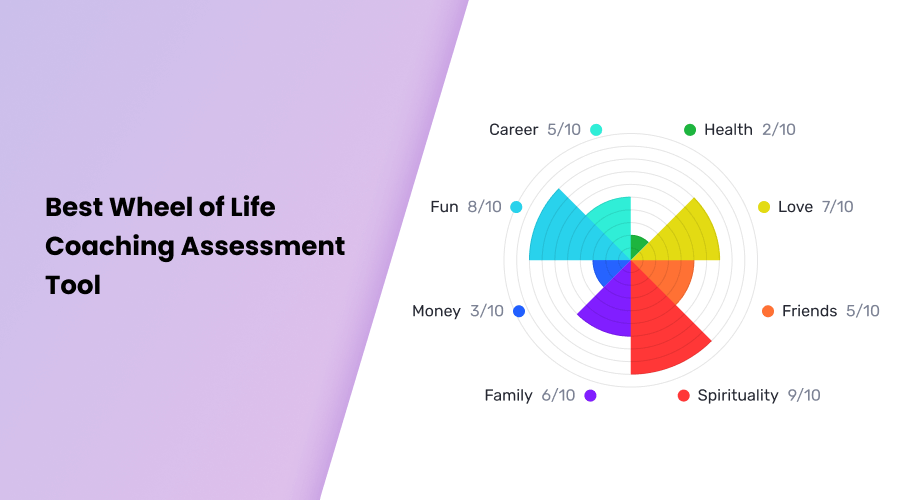Do you know that there are approximately 4.4 million life coaches worldwide? Yet, despite this expanding coaching industry, many of you are unaware of who life coaches are.
If you are one of them, this blog post is for you.
So, what is a life coach?
A life coach is someone who helps people to identify and achieve personal and professional goals. They can help you set goals, overcome obstacles, and make positive changes in your life.
If you feel stuck in your career, unhappy in your personal life, or just need some guidance to reach your full potential, life coaches can help. They will assist you in identifying your goals and developing a plan to achieve them.
Moreover, they are like cheerleaders, motivators, and friends all rolled into one.
Types of Life Coaches
Before hiring a life coach, it is essential to understand the different kinds of coaches available and what they specialize in.
In general, life coaches can help you with almost any aspect of your life. However, it is best to look for those specializing in a particular area.
Some are great at assisting you in life, while others are brilliant at supporting you in your career. Some coaches also focus on specific topics like relationships, health, or finances.
When choosing a coach, it is essential to find someone who can help you achieve your particular goals. Otherwise, you may find yourself dealing with someone who is not a good fit for your needs.
Some common types of life coaches include;
- Career Coaches: These coaches help individuals identify and achieve their career goals. They may help with things like resume writing, communication skills, job interviews, and networking.
- Financial Coaches: They help people manage their money and make sound financial decisions. They also may help with budgeting, debt management, and investing.
- Health and Wellness Coaches: These coaches help people improve their physical and mental health. They may help with things like nutrition, exercise, and stress management.
- Relationship Coaches: Relationship coaches help people improve their personal and professional relationships. They may help with communication, conflict resolution, and setting boundaries.
- Spiritual Coaches: Spiritual coaches help people connect with their spirituality and find meaning in their lives. They may help with things like prayer, meditation, and ethical decision-making.
Life Coaches Role: Are They Helpful?
A life coach is a great asset to have in your life. Life coaches work with clients on a one-to-one basis or in group settings to achieve their personal and professional goals. Some significant roles of life coaches are;
- Help people identify and overcome obstacles and achieve their desired outcomes.
- Helps client with career planning, relationship advice, work/life balance and stress management.
- Allows people to set realistic goals and develop action plans to achieve them.
- Provide motivation and encouragement to keep their clients on track.
- Supports clients in exploring their strengths.
With the rising popularity of life coaches, their roles and usefulness is also being critiqued.
How helpful are life coaches? It all depends on what you are looking for in a life coach.
If you’re seeking someone to help give you clarity and direction in your life, then a life coach can be helpful. A good life coach will help you better understand yourself, set goals, and create a plan to achieve them.
However, if you’re expecting your life coach to be a magical solution to all your problems, you’ll likely be disappointed.
A life coach can’t wave a wand and make all your troubles disappear. All they can do is provide guidance and support. But, ultimately, it’s up to you to make the changes in your life.
Did you know that life coaches use various plugins like Wheel of Life on their websites to visualize and keep track of their clients’ lives? Such tools assist the coaches and may also help clients see how balanced their lives are.
Who Can Become a Life Coach?
Do you love helping people and wish to become a life coach but are concerned that you do not have a life coaching degree? Worry not.
Interestingly, anyone can opt for a coaching career.
As life coaching is relatively new, no formal educational qualification is required. However, most life coaches have a background in psychology or counseling, and some have also worked as teachers, coaches, or in other helping professions.
Many life coaches have completed training programs or courses in coaching or related fields.
Now, let’s find out some of the essential skills one needs to become a successful life coach.
- First, you need to be a keen listener. As per the vice president of the International Coaching Federation, life coach trainers must be terrific listeners. As your clients will be sharing their innermost thoughts and feelings with you, it’s vital that you can hear what they’re saying.
- It is excellent if you also are non-judgmental. Your clients may have made some poor choices in their lives, but it’s not your job to judge them. Instead, your job is to help them find their way forward.
- You are also required to be supportive and motivational. Your clients will be working hard to make changes in their lives, and they’ll need your support to stay on track.
- Finally, you need to be able to keep confidential what your clients tell you. Their stories are not yours to share.
So, if you possess these qualities, you do not have to worry about how to become a life coach.
The Difference Between Life Coaches, Therapists and Counselors: Are They the Same?
Though the world has become more open about mental health in recent years, it is still struggling.
The World Health Organization (WHO) determined in 2019 that depression is now the leading cause of disability worldwide.
Furthermore, according to an assessment, the global depression and anxiety index have surged by about 25% in 2020.
These statistics vividly show that more individuals than ever are struggling with emotional and mental health concerns.
As a result, there has been an increase in the number of people seeking out the assistance of a life coach, therapist or counselor.
But who can become a life coach? And what exactly is the distinction between these three professional roles?
| Life Coaches | Therapist | Counselor |
|---|---|---|
| Help to set professional goals and individual goals while assisting personal development. | Diagnose and treat traumas and mental health conditions, and behavioral disorders. | Comparable to a therapist, but are more concerned with the present. |
| Help you with things like developing positive thinking patterns, setting achievable goals, improving emotional health and taking action towards them. | Help you deal with traumas from your past, manage anxiety or depression, or overcome addiction. | Help you with things like relationship issues, stress management and making decisions. |
| Do not need specific academic qualifications. | Requires special license and degree. | May or may not require a particular degree, but a license is mandatory. |
So, which one should you choose? It depends on what you’re looking for help with. If you’re still unsure, it might be a good idea to talk to a few different professionals before deciding.
How to Choose a Good Life Coach?
With the rising popularity of life coaching, the number of life coaches has also expanded substantially. Because certification and qualification are not required, anyone may call oneself a life coach. We also notice a lot of folks on social media professing to be life coaches.
Selecting a life coach is a critical decision. After all, this individual will be assisting you in making big life changes.
Though there is no one-size-fits-all answer to finding a suitable life coach, there are some things we can consider while choosing the right one;
- First, look for someone who has experience and expertise in the area you want help with.
- Then, find someone you feel comfortable talking to and who you feel will be supportive.
- Talk to friends, family, and colleagues who may have worked with a life coach in the past. See if they can recommend someone.
- Lastly, once you’ve narrowed down your options, set up a consultation with each coach you’re considering. This will allow you to feel their personality and style and see if you click.
Choosing a life coach is a personal decision. But by researching and taking your time, you can find someone who’s right for you and can help you achieve your goals.
5 Benefits of Seeing a Life Coach
Even though you must have grasped the value of a life coach by now, you may still be hesitant to hire one. It’s most likely because you don’t realize the advantages of viewing them.
Here are the 5 significant benefits of visiting a life coach;
- Discover life’s passion and purpose: Many of us are unsure of what we want for ourselves and how to get there. Connecting with a life coach will allow you to understand yourself and your capabilities better.
- Problem-solving: There may not be anyone without a problem. Some individuals are able to overcome their difficulties quickly, while others may battle for an extended period. As a result, for someone who is struggling, a life coach may enable you to recognize your issues and find new solutions.
- Be Mindful: Life can be stressful at times. In such instances, practicing mindfulness may be really beneficial. Who assists you in achieving mindfulness? Life Coaches. They use a variety of approaches to return you to the present moment and allow you to appreciate life.
- Achieve Self-awareness: Self-awareness is crucial if you want to attain a positive outcome and grow as an individual. A life coach will assist you in determining your behavior, strengths, weaknesses, and self-worth. And, doing so might help you decide the suitable objectives for you.
- Enhance productivity: Are you lagging at your work and feel that 24 hours is not enough? You may be feeling this way as a result of a lack of motivation, which has contributed to your increasing unproductivity. So, a life coach can assist in this field as well. They will allow you to make routines and follow them so that you can make better use of time and boost your productivity.
Conclusion
If you feel stuck and wish to make positive changes in your life, hiring a life coach may be the right step.
They help you to set and achieve your goals, overcome obstacles, and make positive changes in your life. They are a great asset to have and can provide you with support and guidance when needed.
Before hiring a life coach, it is vital to understand the different types of coaches available and what they specialize in. This will aid you in choosing the perfect coach for you.
There are many benefits to working with a life coach, so if you feel like you could use some guidance and support, don’t hesitate to reach out for help.
Have you ever worked with a life coach? What was your experience like?



